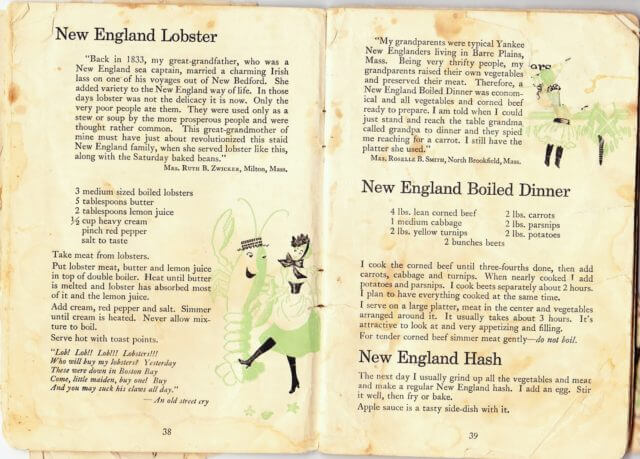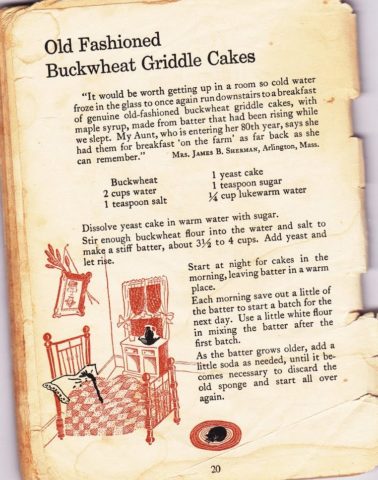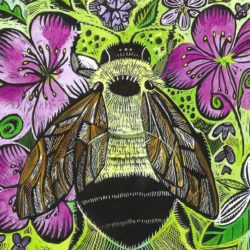One of my favorite pieces of writing, one that I have gone back to time and again over the years, is a cookbook published by the H.P. Hood Dairy in the 1940s. My copy is so old and tattered it begins on page ten.
What I love about this cookbook are the stories that are told by contributors and accompany each recipe. For example Mrs. James B. Sherman of Arlington, Massachusetts writes of the buckwheat griddle cakes:
“It would be worth getting up in a room so cold water froze in the glass to once again run downstairs to a breakfast of genuine old-fashioned buckwheat griddle cakes, with maple syrup, made from batter that had been rising while we slept. My Aunt. who is entering her 80th year, says she had them for breakfast ‘on the farm’ as far back as she can remember.”
“…so cold water froze in the glass…” I would like to have known Mrs. Sherman and heard more of her stories. We all have stories about food experiences. Food ties us to family (“my aunt who is entering her 80th year”), food ties us to culture.
In my family in rural Maine, we had a large garden and summertime was pickle-making time. I grew up with the sweet, vinegary, spicy smells of fresh-made pickles. And when our children were young and we went back to Maine they were part of pickle-making too. Food experiences become stories, or poems.
Our daughter Sarah (www.sarah.busse.com; www.versewisconsin.com), now a poet and pickle maker has said I can share her poem of pickle making.
Billy Mills’s Bread and Butter Pickles
Plunge glass jars into clean hot water and soap.
(Wash the world, wash the weary feet of the traveler.)
Then scrub the cukes in cold and towel dry.
Slice onions thin. For accent pick a pepper,
Green or red. Salt it all down with ice.
The brine is vinegar and sugar in equal part,
Mustard and celery seeds, whole studs of clove,
Turmeric for color. Bring to a boil,
But only just.. Turn off the stove. This
Is the secret to keeping them crisp.
A small detail, but crisp is the trick, the unseen
Flick in the wrist, that makes them really good.
Where might love lead, if we were light on our feet?
If we were quick? That’s not our way.
Welcome the traveler, and don’t skip the turmeric.
We all have food stories–stories of special holiday dishes, stories of Friday night traditions, or of special Grandma or Grandpa recipes, stories of fishing, or mushrooming, or growing huge pumpkins.
Food stories are often the beginnings of longer works. And food stories are fun for kids, grownups, readers and writers. Once a month I want to feature food stories–some from picture books, some from cookbooks, some from other authors, some from you, I hope.
Let’s eat. Let’s write.



